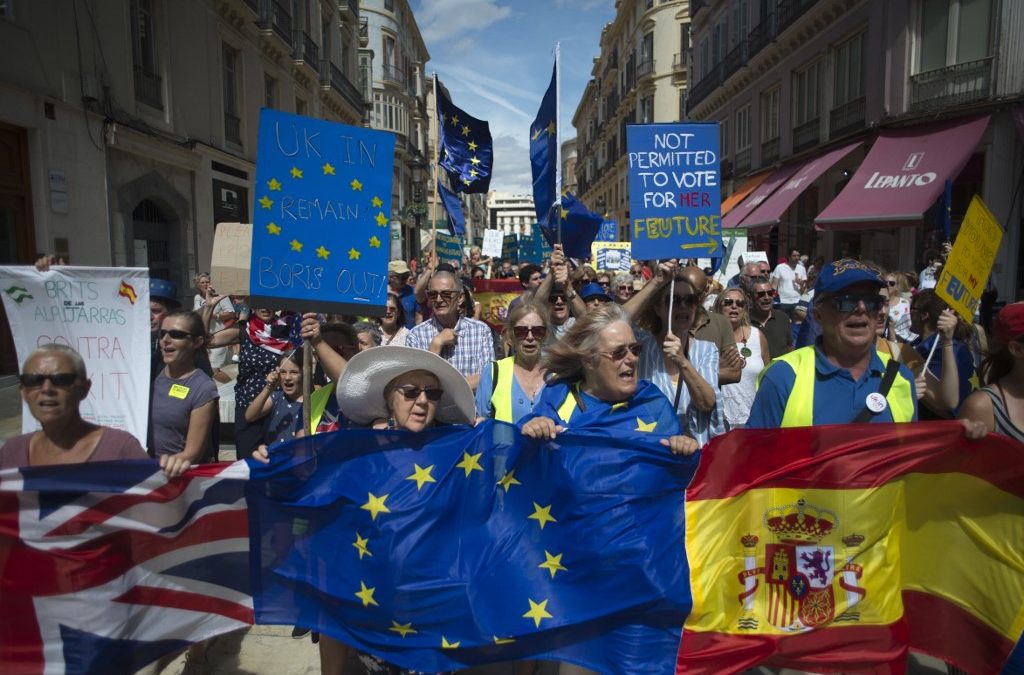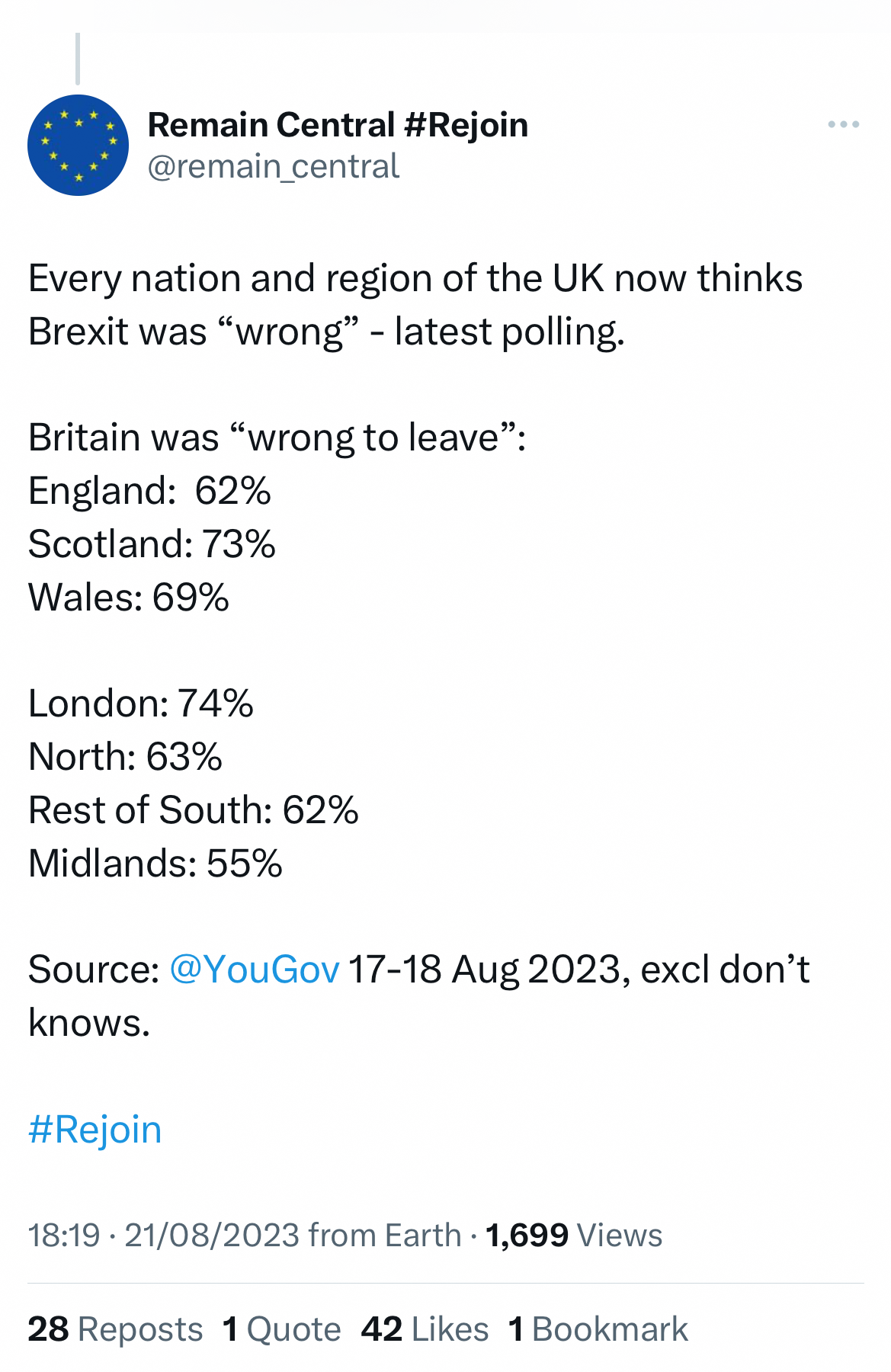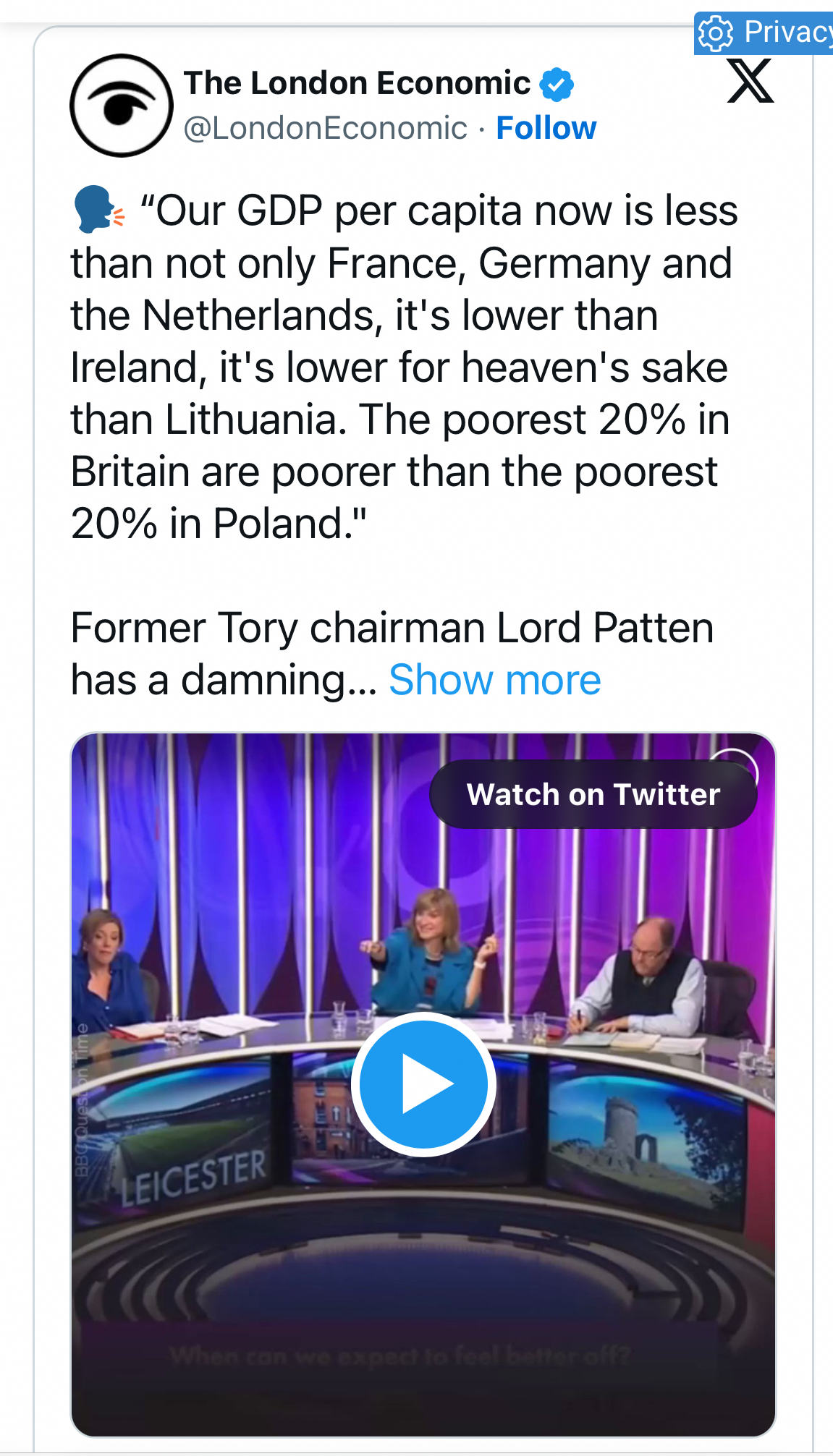Bremain Vice Chair Lisa Burton writes for Bylines Cymru. Lisa lives in Spain but that doesn’t make her any less Welsh, or care any less about the UK. Join her on the March to Rejoin the EU
There’s a saying. You can take the girl out of the Valleys, but you can’t take the Valleys out of the girl. I’ve been a resident of Spain for 12 years now. But I was born in the Rhondda Valleys, South Wales, where I grew up on a council estate in the 1970s. I’m deeply proud of my Welsh and Rhondda heritage and working class roots, and visit my family who live there regularly.
I identify as Welsh, British, and European; choosing to live elsewhere doesn’t mean you’re turning your back on your country. British immigrants abroad often maintain solid ties. We have elderly parents, adult children, grandchildren, and friends living there. We want them to have the best lives possible. So of course we have a vested interest in the health and prosperity of our home nation. That’s why I was devastated in 2016 when the UK voted to leave the European Union.
A manufactured enemy
The Leave campaign resonated with many people, particularly those from struggling, left-behind communities like mine. Immigration was weaponised and used to instil fear, even though 96% of the Welsh population self-reports as White British.
Many from post-industrial communities lacked opportunities and felt powerless to be heard or affect political change. So when Nigel Farage and the likes told people their lives were somehow under threat, pointing fingers at the big bad EU and immigrants as scapegoats for all their woes, while flooding social media with lies and psychological ads, it’s no surprise many were persuaded it was in their interest to vote to leave.
Brexit gave people who felt ignored and let down an opportunity to kick the establishment. However, the wrong establishment got the kicking.
It wasn’t the EU that shut down coal mines, putting tens of thousands of men out of work and thus their families into poverty. It wasn’t the EU that did nothing to replace these industries or invest in the communities. That was Thatcher and successive governments.
The current Conservative government has been in charge for 13 years. Their austerity measures decimated council budgets and stripped away youth services, home help, mental health and addiction support, care in the community, policing, libraries, sports facilities, and lives. Look no further if you want someone to blame.
Shockingly, the most profound economic divide in Northern Europe is between London and West Wales and the Valleys. London is the richest, West Wales and the Valleys are the poorest, with several other UK regions up there – down there? – too.
The Welsh economy
Wales received £83 per person in funding from the EU, funnelling billions of pounds into regeneration projects, infrastructure, training, and job creation, which helped to heal economic divides. If the UK was still part of the EU, between 2021 and 2027, Welsh people would’ve received £3.8bn in regional project funding, which would help further close the economic gap.
The UK government said it would replace all EU funding. But, as with so much else, it lied and has not.
With this interactive map you get some idea of how much job creation and how many cultural and regeneration projects were aided by EU money. There is no denying that EU membership was fantastic for Wales.
Welsh farmers contribute significantly to the economy of Wales, with agriculture representing a higher percentage of the Welsh economy compared to the UK as a whole. Yet the UK government sold out British farming and Welsh farmers when it signed the New Zealand and Australia trade deal.
The deal will bring negligible benefits to the economy. It benefits farmers on the other side of the planet while disadvantaging UK farmers. And all for a few cheap headlines, so it can pat itself on the back and pretend such deals are some sort of Brexit success.
I asked Liz Webster, founder of Save British Farming, for her thoughts. She said, “Brexit is particularly damaging for Welsh farming because of its large sheep sector, which relies on exports to the EU. Unlike England, the Welsh Government is still subsidising food production, so the full impact of Brexit is yet to be felt by Welsh farmers. We need a common sense approach to food security as the world’s food system can’t be relied on to always provide the UK with enough food.”
Changing minds
Most voted Leave because they thought it would be best for them, their families, and their communities, just as those who voted to remain did. Yes, the lies were horrendous, but such a complex issue should never have been put to people in a binary referendum.
Now people are waking up to the damage of Brexit, pro-Europeans need to give them space and support to do so. Changing your mind as facts change around you is perfectly normal, and 69% of people in Wales now think leaving the EU was wrong. No one under 25 today got a say on Brexit, but 86% of those aged 16–25 want and would vote to rejoin.
https://x.com/remain_central/status/1693659098733044088?s=20
Being a member of the EU brings prosperity. It’s why the UK joined in 1973, when it was known as ‘the sick man of Europe’. Poland will be wealthier than the UK by 2030, with other Eastern bloc countries like Hungary and Romania expected to surpass it by 2040. 20% of the poorest UK households are now more impoverished than the poorest 20% in Poland. This was unimaginable when Poland joined in 2004.
https://x.com/LondonEconomic/status/1664542152599150593?s=20
After the referendum, I felt angry that freedom had been taken from us. I couldn’t understand why a government would do something knowing it would harm the country and its people. Most of all, I felt helpless and powerless to do anything.
Then I heard of the citizens’ rights and pro-EU group Bremain in Spain and joined them. That was five years ago; I’m now Vice-Chair of Bremain. We lobby on behalf of British people in Spain and Europe, have given evidence to Parliamentary committees, and collaborate with dozens of other pro-EU groups and organisations across Britain and Europe.
True patriotism
My colleagues and I often face abuse for daring to oppose Brexit from afar. Brexiters deem us as traitorous for wanting a say. But we understand the gift of freedom of movement because we’re living it, and wouldn’t be where we are without it. We love our country and want it and its people to prosper.
Communities up and down the country can’t take any more austerity and cuts. Society is suffering. That’s why, on 23 September, I’ll speak on stage in Parliament Square at the second National Rejoin March. I’m hoping to bring a positive message about freedom of movement, and to dispel some myths about us British migrants living in Europe.
Where do we go from here? The UK is again being referred to as the sick man of Europe. Shall we stumble along for decades while our European neighbours see prosperity and growth, as they work together for a better future? Do we deny our children and grandchildren the right to work, live, marry, and retire across 31 other countries like their European counterparts?
Brexit has taken so much. It hasn’t worked, and it can’t work. So isn’t it time we asked ourselves what being a patriot means? Do we dig in harder, denying the damage to our communities, country, and individuals? Or do we do what’s sensible and inevitable? That is: stem the damage and start working our way back to our European family again.
If you feel like me, join me and thousands of others in London for a great day out on Saturday 23 September at the National Rejoin March. You’ll find all the details on their website. See you there, in hope.








